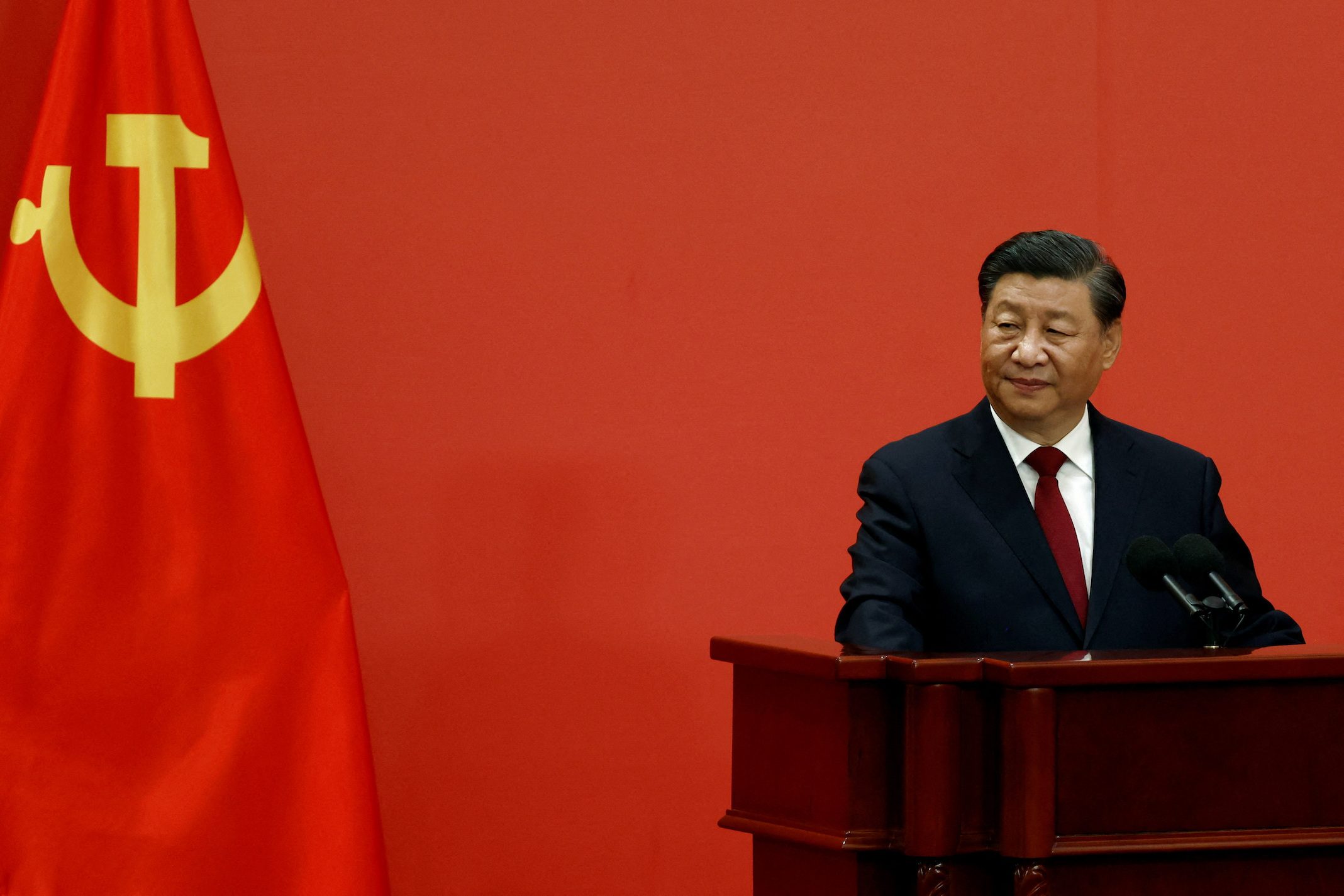SUMMARY
This is AI generated summarization, which may have errors. For context, always refer to the full article.

BEIJING, China – Xi Jinping secured a historic third leadership term in October, emerging as China’s most powerful ruler since Mao Zedong, bolstered by a Politburo Standing Committee stacked with allies and no successor-in-waiting to challenge him.
It was a rare highlight for Xi in 2022, a tumultuous year capped by unprecedented street protests followed by the sudden reversal of his zero-COVID policy and coronavirus infections rampaging across the world’s most populous country.
While frustration over zero-COVID and its devastating impact on the second-largest economy did little to disrupt Xi’s march towards five more years as general secretary of the ruling Communist Party, 2022 was a year of crises at home and abroad for the 69-year-old leader.
China’s economy is on track to grow at around 3% in 2022, far short of its official target of roughly 5.5%, as the country’s outlier COVID curbs stifled consumption and disrupted supply chains, while crisis in its massive property sector continued to weigh.
Beijing’s relations with the West deteriorated, worsened by Xi’s “no limits” partnership with Moscow struck just ahead of Russia’s invasion of Ukraine in February, as well as growing tensions over US-backed Taiwan, which China considers part of its territory.
Xi traveled abroad for the first since the start of the pandemic, meeting with Russian President Vladimir Putin in September. In November, he met US President Joe Biden at the G20 in Indonesia as both sides sought to steady relations.
Later that month, protesters in cities across China took to the streets in opposition to nearly three years of stifling COVID-19 controls that were a signature Xi policy. Such widespread protests were the first in China since 1989.
In an unexpectedly sudden reversal, China in early December dropped most of its COVID controls as cases in cities including Beijing surged, despite warnings from global experts over insufficient vaccine coverage and a health system unprepared to cope with an explosion of infections.
Why it matters
For decades, China has been the world’s primary economic growth engine as well as the linchpin in industrial supply chains. A prolonged economic slowdown or fresh logistical disruptions, whether due to COVID or geopolitical tensions, would reverberate globally.
Xi further consolidated his power in a process that began when he first took office a decade ago, a concentration that has taken China in a more authoritarian direction and that critics warn raises the risk for policy missteps.
Immediately after October’s Communist Party congress, global investors dumped Chinese assets and the yuan currency tumbled to its weakest in nearly 15 years on fears that security and ideology would increasingly trump growth and international detente during a third Xi term.
What does it mean for 2023?
Since the congress, China has reversed zero-COVID and said it will focus on stabilizing its $17 trillion economy in 2023.
Management of mushrooming infections across a vast population with little “herd immunity” is Xi’s most pressing challenge, with implications for public health as well as social stability and the economy.
Experts warn that China, home to 1.4 billion people, could see more than 1 million COVID-related deaths in the coming year.
At its annual parliamentary gathering in March, China will complete its leadership transition, with Shanghai party chief Li Qiang, a close Xi ally, poised to replace the retiring Li Keqiang as premier, a role charged with managing the economy.
The World Bank expects reopening of China’s economy will lift growth to 4.3% in 2023 from its forecast of 2.7% for the current year.
Diplomatically, Xi appears to be trying to cool some of the tension that has made relations with the West increasingly fraught, even as Beijing tries to shore up its position as a counterweight to the US-led post-World War Two order, with outreach such as Xi’s recent visit to Saudi Arabia. – Rappler.com
Add a comment
How does this make you feel?
There are no comments yet. Add your comment to start the conversation.